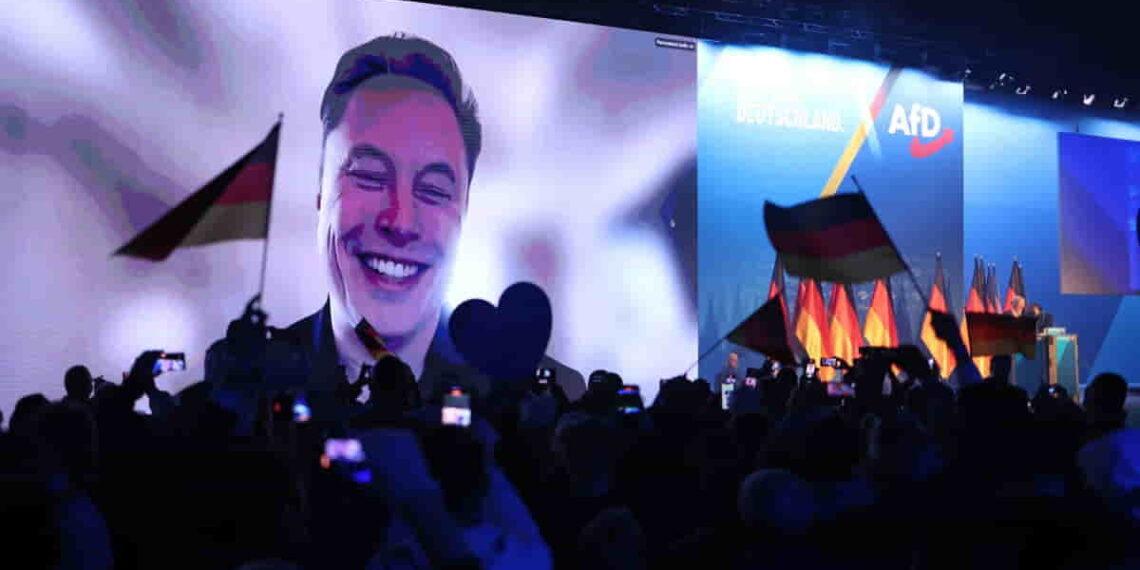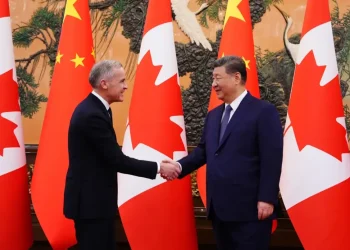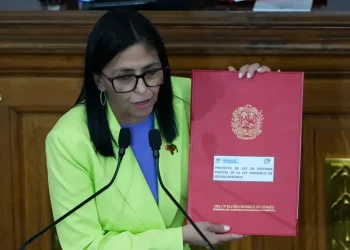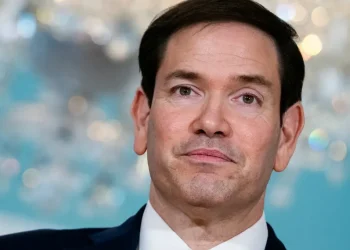Germany’s Far-Right AfD Party and Its Infatuation with Trump and Musk
The far-right Alternative for Germany (AfD) party has sparked attention with its fascination for figures like Elon Musk and Donald Trump. During a recent rally in Halle, eastern Germany, Maximilian Krah, a controversial AfD politician, made bold remarks comparing the party’s appeal to that of Trump and Musk.
“You have to make a decision,” Krah told CNN. “Do you want the party of Chancellor Olaf Scholz and his eunuchs? Or are you with us, with Elon Musk and Donald Trump? Which side has more sex appeal?”
Minutes after his statement, a surprise video appearance by Elon Musk was broadcast to the 4,000 supporters at the event. Senior AfD officials expressed admiration for Trump’s administration, with the party’s rhetoric fueling speculation about a deepening connection.
The AfD’s Rising Popularity: A Mirror to Trump’s America?
As the AfD gains momentum in German polls, their infatuation with Trump seems to stem from shared ideological ground. Both parties have capitalized on populist messages surrounding nationalism, anti-immigration policies, and critiques of the establishment. While Musk’s support is newer territory for the AfD, it is clear they are leveraging his influence to normalize their far-right platform.
Party leader Alice Weidel praised Trump and Musk, offering well-wishes for their political futures. She told CNN, “I wish [Elon Musk], Donald Trump, and JD Vance all the best blessings for their next tenure.” Similarly, co-leader Tino Chrupalla, who attended Trump’s inauguration, expressed admiration for the former U.S. president. Chrupalla praised Trump’s leadership, calling it “politics for the people.”
The Role of Elon Musk in AfD’s Strategy
Musk’s support for the AfD marks an unprecedented moment for the party. Researcher Matthias Quent believes Musk’s backing helps position the AfD as a more mainstream political entity, aligning with global far-right movements. Quent says, “The AfD sees the rise of far-right leadership in powerful countries like the U.S. as a sign that they, too, can achieve similar success.”
Musk’s public endorsement at the rally further strengthened the AfD’s position. He stated, “The AfD is Germany’s best hope,” and emphasized the importance of preserving German culture and values. His views on nationalism and anti-multiculturalism align with the AfD’s longstanding rhetoric.
However, Musk’s comments have stirred controversy, especially when he questioned the focus on historical guilt in Germany. His remarks, which downplayed the significance of past atrocities, sparked outrage from German Chancellor Olaf Scholz, who labeled them “disgusting.”
Is Musk’s Support Impacting the AfD’s Popularity?
While Musk’s endorsement brings global attention, Quent questions whether it directly influences the AfD’s popularity in the polls. He suggests that the party’s rise is more likely linked to the failures of the current government, particularly its handling of immigration issues, a central topic in the AfD’s platform. With the party polling at approximately 21%, they are poised to become Germany’s second-largest political force.
Despite this rise, the AfD is unlikely to gain a foothold in the government due to Germany’s longstanding “firewall” agreement, which ensures that no major party will collaborate with the AfD in forming a government or passing laws. Nonetheless, the AfD’s influence is undeniable, especially as debates on immigration legislation are shaping the campaign.
The Impact of the AfD on Germany’s Political Landscape
The recent “influx limitation act” vote, led by Friedrich Merz of the Christian Democratic Union (CDU), underscored the growing influence of the AfD. Merz’s defeat on the issue was seen as a setback for his campaign and a small victory for the far-right party.
As the AfD’s presence in Germany’s political scene strengthens, Quent emphasizes that the party’s leadership is rallying around Trump and Musk’s success. Despite possible setbacks in forming a government, the AfD feels empowered by their momentum and the populist energy surrounding their platform.
While the AfD’s ties to Trump and Musk may raise eyebrows, one thing is clear: the far-right party is capitalizing on international influence to reshape Germany’s political landscape.
This article was rewritten by JournosNews.com based on verified reporting from trusted sources. The content has been independently reviewed, fact-checked, and edited for accuracy, neutrality, tone, and global readability in accordance with Google News and AdSense standards.
All opinions, quotes, or statements from contributors, experts, or sourced organizations do not necessarily reflect the views of JournosNews.com. JournosNews.com maintains full editorial independence from any external funders, sponsors, or organizations.
Stay informed with JournosNews.com — your trusted source for verified global reporting and in-depth analysis. Follow us on Google News, BlueSky, and X for real-time updates.














